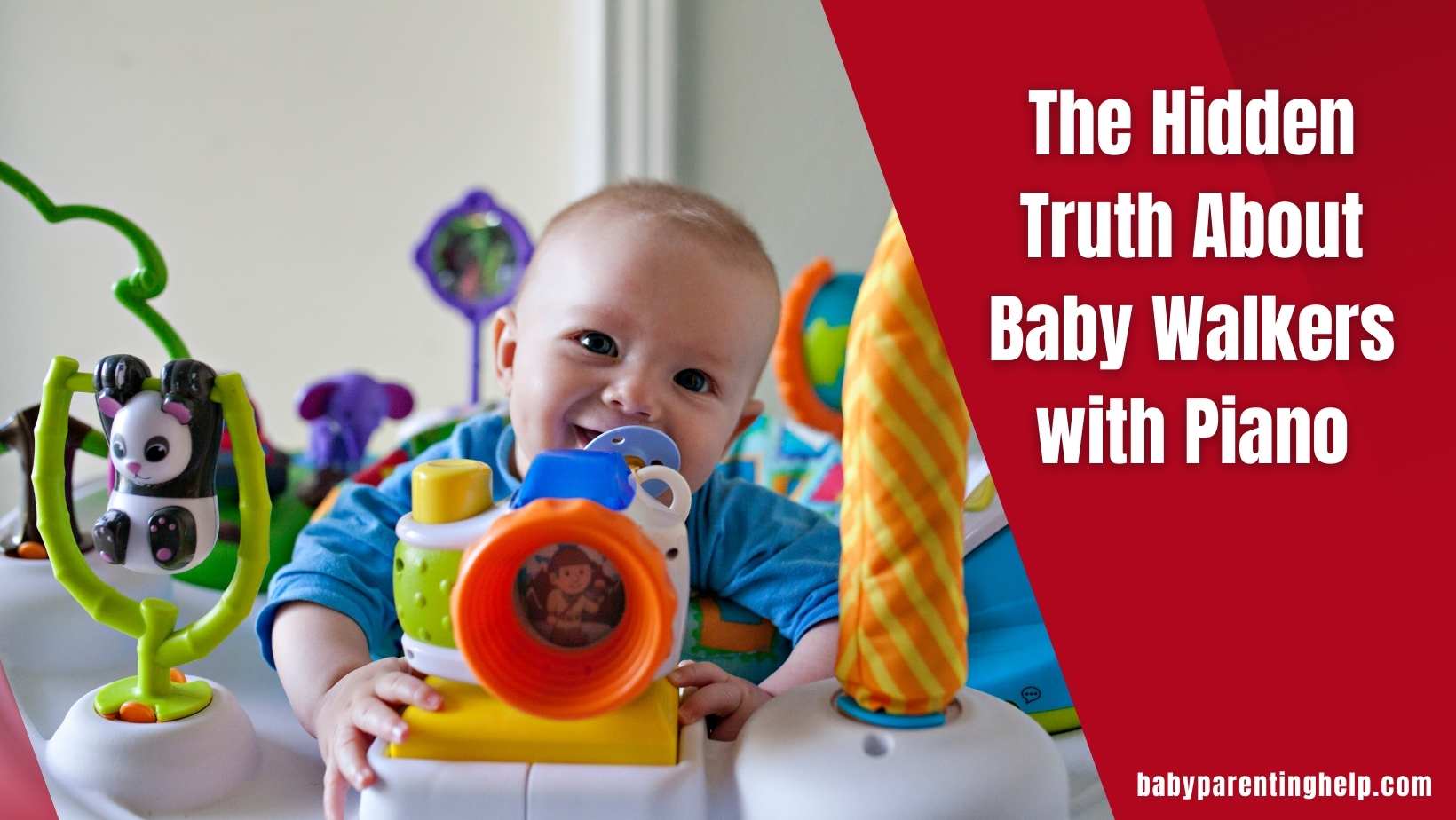Baby walkers with pianos are popular toys designed to entertain and assist infants in learning to walk. They often come with interactive features such as music, lights, and toys, making them enticing for babies and parents. However, every parent should know certain truths about baby walkers with pianos before considering their use. This article will explore the benefits and risks associated with these devices, discuss essential safety considerations, and provide alternative solutions for aiding your baby’s walking development.
Contents
Benefits of Baby Walkers with Piano
Baby walkers with piano offer several potential benefits for infants and their parents. These benefits include:
1. Entertainment and Engagement
Baby walkers with piano pianos come equipped with varvariousractive features, including colorcolourfults, catchy melodies, and engaging toys. These features can capture the baby’s attention and provide entertainment during playtime.
2. Motor Skills Development
Using a baby walker with a piano can help stimudevelop baby’s motor skills. Dive, they push themselves off the ground and move around. They engage their leg muscles, promoting balance and coordination.
3. Cognitive Stimulation
The interactive features of baby walkers with piano can stimulate your baby’s cognitive development. The lights, sounds, and toys enhance sensory exploration and their understanding of cause and effect.
Risks and Concerns
While baby walkers with piano offer certain benefits, it is imporessentialonsider the potential risks and concerns associated with their use.
1. Delayed Motor Skills Development
Contrary to popular belief, using baby walkers with piano may help the development of certaspecificr skills. The reliance on the walker for mobility may hinder the natural progression of crawling, pulling up, and cruising, essential for a baby’s overall physical development.
2. Safety Hazards
Baby walkers with pianos pose safety hazards, primarily due to their mobility. Babies using walkers can move faster and more dangerous areas or objects that could lead to accidents or injuries. They are prone to falling down stairs, tipping over, or colliding with furniture or walls.
3. Negative Impact on Natural Walking Process
The design of baby walkers with piano differs significantly from the natural walking process. They encourage the baby to walk on their tiptoes, promoting an unnatural gait pattern. This can potentially lead to problems with balance, posture, and the development of proper walking mechanics.
4. Lack of Supervision
Even with safety precautions, babies using walkers still require constant supervision. They can move quickly and reach hazardous areas before caregivers can react. Lack of control increases the risk of accidents and injuries.
Safety Tips for Using Baby Walkers with Piano
If you decide to use a baby walker with a piano despite the associated risks, it is crucial to follow specific safety guidelines:
- Always use the walker on a flat and even surface, away from stairs, pools, and other dangerous areas.
- Keep an eye on your baby. At alalwaysnever leave them unattended in the walker.
- Remove any potential environmental hazards, such as sharp objects, hot beverages, or small minoring hazards.
- Choose a walker with sturdy construction and reliable braking mechanisms to minimize the risk of tipping over or sudden movements.
- Limit your baby’s time in the walker and provide them with plenty of floor time for unrestricted movement and exploration.
Alternatives to Baby Walkers with Piano
To promote your baby’s walking development while minimizing the risks associated with baby walkers with piano, consider these alternative solutions:
1. Stationary Activity Centers
Stationary activity centres provide a safe and interactive space for your baby to play and explore. These centres offer a range of toys and activities that encourage movement and cognitive development without mobility hazards.
2. Push Toys and Walkers
Push toys and walkers that provide support without restricting natural movement can be excellent alternatives. These toys encourage babies to push themselves off the ground and take steps while maintaining balance and coordination.
3. Baby Proofing and Safe Play Areas
Creating a safe play area at home is crucial for your baby’s overbearing. Baby-proof the surroundings, remove potential hazards, and provide ample space for your baby to move, crawl, and practice walking without needing a walker.
Conclusion
Baby walkers with piano may seem appealing for aiding your baby’s walking development, but they come with hidden risks and concerns. The potential delays in motor skills development, safety hazards, and negative impact on the natural walking process make them less desirable. Instead, consider alternative options such as stationary activity centres, push toys, and creating safe play areas that promote your baby’s mobility and cognitive growth in a safe and natural manner.
F.A.Q.s
- Are baby walkers with pianos suitable for all babies? Baby walkers with pianos are not suitable for all babies. Some babies may benefit from their use, but it is essential to consider the potential risks and concerns before deciding.
- What age is appropriate for using baby walkers with the piano? Most experts recommend avoiding baby walkers with piano altogether. If you still choose to use them, wait until your baby can sit unassisted and has reached the recommended age specified by the manufacturer.
- Can baby walkers with piano help my baby walk sooner? Baby walkers with a piano do not guarantee your baby will start walking sooner. In fact, they may delay the natural walking process.
- How long should I allow my baby to use a walker each day? Limiting the time your baby spends in a walker to 15-20 minutes per day is recommended. Ensure they have plenty of floor time for unrestricted movement.
- What are the risks of using baby walkers with the piano? The risks associated with baby walkers with piano include delayed motor skills development, safety hazards, negative impact on the natural walking process, and the need for constant supervision.

I am an accomplished writer, a devoted father, and a compassionate advocate for new and experienced parents in my baby’s parenting journey. With a wealth of firsthand experience and a deep understanding of the joys and challenges of raising children, I become a trusted voice in the parenting community.


